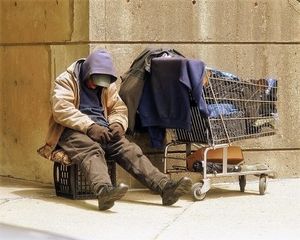Mark was a 27-year-old from Clwyd, working for a firm that fitted ten-pin bowling alleys. It was a job that many lads of his age would have been happy to have had, but Mark had bigger dreams. Like other young boys in North Wales he had grown up with the idea that London was a million miles away. It might as well have been!
London was the place of excitement and endless opportunities. It was where young people wanted to be and where they could thrive. After all, there were only so many ten-pin bowling alleys that the people of Clwyd wanted. And what then?
He made up his mind. He would pack in his job and seek a better future in a place that, until then, had only been a kaleidoscope of images drawn from the TV screen and magazines — Buckingham Palace, Tower Bridge, Big Ben and the rest. It was a brave step to take, but an exhilarating one at the same time.
And so, in 1990, he stepped off the train at Euston Station with the clothes he wore and a rucksack of essential possessions. He knew the streets were not actually paved with gold, but it still felt good. He may not have had the ability or ambition to become London’s mayor, but he had something of the joie de vivre of a modern Dick Whittington.
Soured dream
His first night was spent sleeping rough. That was not a problem; he’d been expecting it. The next day he would get a job and sort himself out. But the next day came and went and he hadn’t found a job. So too the next day, and the day after that.
Like so many other youngsters, the dream was quickly becoming sour. Soon he was depressingly familiar with the streets around Oxford Circus and Trafalgar Square. St James’s Park became his home at night — a far cry from the gentle day-time pleasures of joggers, office workers eating a sandwich and tourists walking beside the lake. Buildings which tourists thronged to visit or photograph would never welcome a down-and-out.
It was a downward spiral for Mark. He was penniless. In the day he would scavenge for food. At night he would bed down on bits of discarded cardboard boxes left outside shops after closing. And, as the winter chill set in, he would block out the cold with bottles of scotch. So far, this story has a tragically familiar ring to it.
But then things changed. A couple of church workers befriended him and got him a job as a basement cleaner in Buckingham Palace earning £9,000 a year. He himself said it was heaven.
Dramatic change
The change in circumstances could hardly have been more dramatic and he was deeply grateful. It may not have been rags to riches, but, if anything, a journey from the pavement to the palace was even more impressive.
Now he had clothes. The palace gave him a smart grey uniform with ‘ER II’ etched across the front. It was worth more than a few long looks in the mirror, struggling to believe that the image looking back at him was really him.
His days of surviving on scraps of left-over bits of food were over. Now he had hot nutritious meals at set times of the day. He was given a spacious room of his own that was warm and clean. Hot and cold water ran in the taps. What more could he want?
Actually, he did want something. Maybe not at first, but after a while Mark began to miss the friends he’d made on the streets. He found the other palace staff cold and distant. Perhaps they knew he’d been sleeping rough and resented the generosity of the palace authorities who’d given him such a gilt-edged opportunity to make a new life for himself. They looked on him as an outsider and treated him like one.
At 5.00 or 6.00pm other members of the palace staff would leave, often to socialise together. Mark would be left sitting on his own watching TV. It all became too much for him. He reflected on his situation and concluded, ‘I was happier in the park; at least they spoke to me there’. ‘I just don’t fit in here’, he told himself.
Radical decision
He therefore took another brave decision that many would describe as foolhardy: he walked out of Buckingham Palace. His thoughts as he did so were about breaking free. Ultimately, he was glad to get back to the familiar friendly faces he had missed from the park benches. It was like he was going home.
Mark had left the place he once believed to be heaven in order to be with his friends. For him the palace had fallen short of the idyllic welcome home he’d fondly imagined.
Isn’t that always the way of things? The places on earth we idealise as heaven are inevitably spoiled to some extent whenever human beings are let loose on them. The gospel of Jesus Christ needs to be heard as much in the corridors of Buckingham Palace as it does in the shop doorways and railway arches of our major cities at night.
Immense change
At Christmas we remember a different journey. The Son of God voluntarily surrendered the glory of heaven, unspoiled in its intimacy and friendship, for the hostility of a depraved and broken world. He came voluntarily. He came to redeem those who would reject and despise Him. Even the small group of friends who had gathered around him would abandon him at the end.
If Mark walked out of the palace saying that he wanted to be with his friends, Jesus Christ left the palace of heaven determined to save and befriend guilt-ridden men and women.
Paul Mackrell grew up in Hampshire but now lives in West Sussex with his wife, Sue, who comes from Liverpool.









